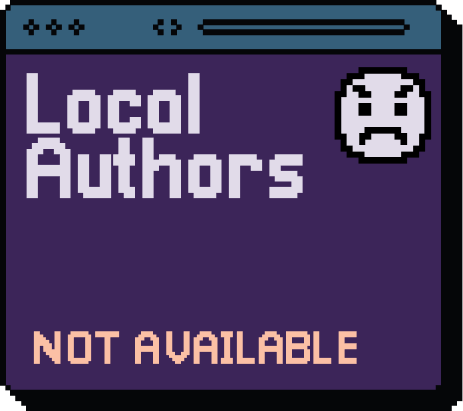

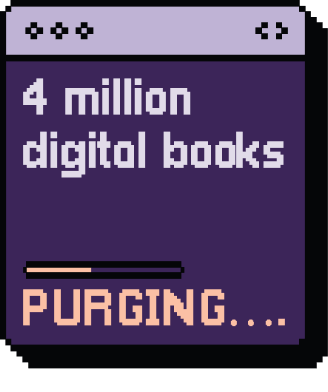
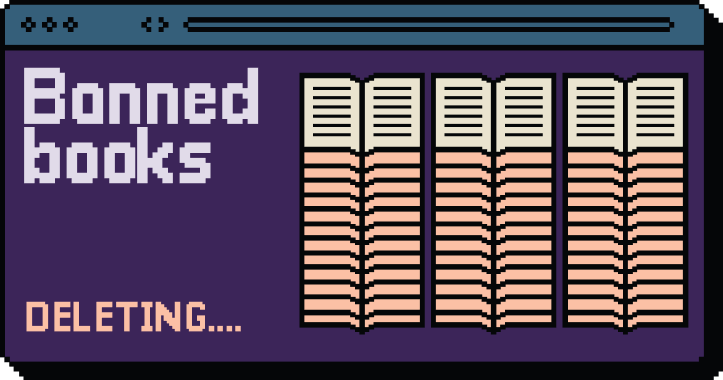

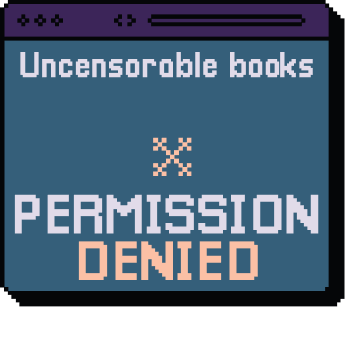
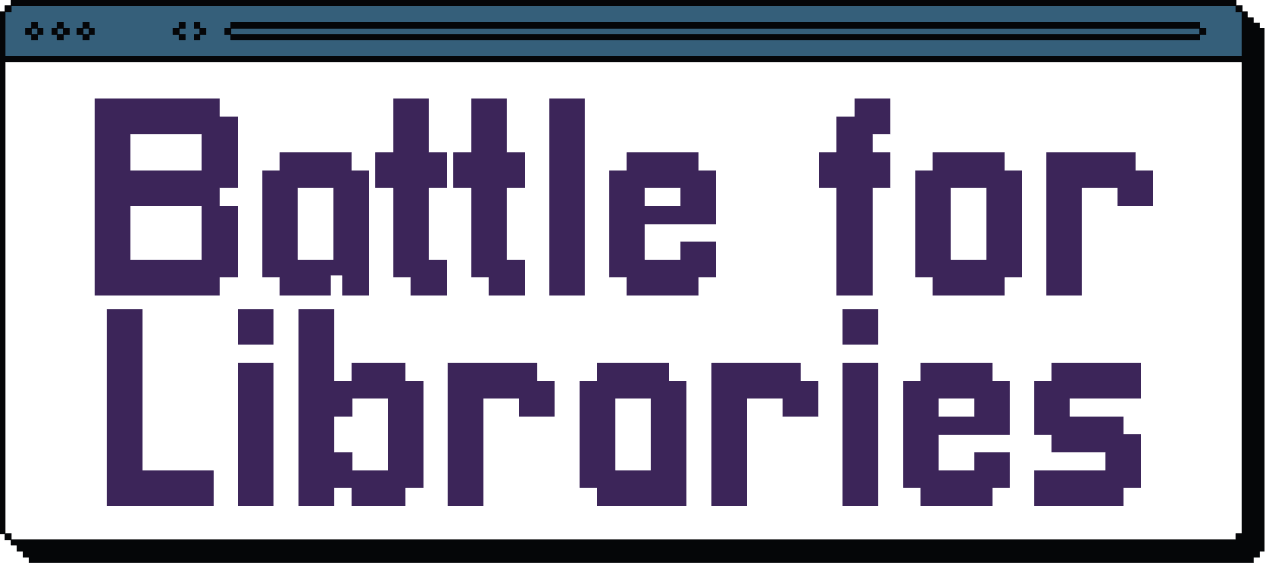
Battle for Libraries
A broad coalition of human rights organizations is calling for a Congressional investigation into Big Tech and Publishing’s overreaching control of the content, reader data, and existence of digital books. Join in and contact your representatives now!
For centuries, people have read books without being surveilled, wondering if what they’re reading is what the author wrote, or worrying that their book might disappear. These rights parallel a long history of battles to protect the right to read anonymously as well as to resist censorship and combat exclusion in publishing. With the increasing popularity of digital books, such battles have entered a new, much more opaque playing field.
That’s why Fight for the Future, GLAAD, Color of Change, Plan C, Athena Coalition, Presente.org, Institute for Local Self-Reliance, the Surveillance Technology Oversight Project, and more are speaking out—with representation from groups spanning civil rights, LGBTQ+, anti-surveillance, anti-book ban, racial justice, reproductive justice, immigration, labor, and antimonopoly interests.
Take action above to lend your voice to a better future for books and reading.
Letter Text: Human Rights Organizations Call on 2024 Congress to Investigate Big Tech and Publishing’s Stranglehold over Digital Books
A broad civil society coalition is sounding the alarm on Big Tech and Big Publishing’s unchecked power over digital books—and surveillance of those who read them. This letter is the first time that such a broad constituency has called for federal action on these matters.
To the 2024 Congress,
We, the undersigned, call on Congress to investigate tech and publishing corporations’ powerful hold over digital book access. A small number of corporations controlling our ability to read and create books is a direct affront to our ability to have a functioning democracy.
Control is so concentrated that only a handful of tech corporations like Amazon or OverDrive and a handful of publishers retain the sole points of access for the overwhelming majority of digital books in the United States—both at public libraries and in private homes. They control what books can be read, what a book says, and watch what we are all reading.
Three in ten Americans now read digital books, while digital self-publishing allows BIPOC authors, LGBTQ+ authors, abortion activists, religious minorities, independent journalists, and local historians to publish books quickly and affordably, eschewing traditional publishing’s gatekeepers. Digital books should open up publishing to new authors and reduce the power of traditional media and publishing gatekeepers.
But, this shift is accomplishing just the opposite. A vast wealth of human knowledge may once again face erasure. This is a fundamental danger to the future of robust, inclusive free expression in this country. The whims of censorious corporate shareholders cannot be allowed to shift who can read stories—or tell them.
For years, authors have been sounding the alarm about the crisis of discriminatory practices in book publishing. Such behaviors stand only to be exacerbated when hidden behind the facade of an app like OverDrive’s Libby or Amazon’s Kindle. We’re already seeing what widespread censorship can do in communities around this country: eliminate education on the history of slavery, ban LGBTQ+ stories from public and school libraries, threaten access to critical information on reproductive healthcare, and force the bigoted views of a few into the experience of thousands.
This is only the beginning. Immediate control of the contents of any book that has been or will be written is solidifying in the hands of large publishers and tech companies. Should this trend continue, books may be removed or altered invisibly; once more imposing the historic erasure of marginalized voices without the public ever knowing what the possibilities for knowledge, representation, and sharing of lived experience could have been. This subverts the fundamental right to free expression that books offer under the first amendment.
Public libraries are celebrated as bastions of democracy—where access to knowledge and information is protected as essential to a free society. Libraries are now hubs for digital books, too. For reasons from disability to the lack of a nearby library, patrons are increasingly checking out digital ebooks and audiobooks. Unfortunately, this demand puts libraries in a vulnerable position: they are struggling to afford digital books, which publishers license at many times the cost of print books. Digital books may, in fact, exacerbate disparities in library service. And with no option for public libraries or private individuals to own the files for most digital books at all, they have essentially no mechanism for accountability or oversight should the contents of their book be altered or erased altogether. Such shifting sands of availability and content can be disastrous—affecting, for example, the ability to learn equitably when using free library resources or the accurate historical study of discrimination in literature.
Unfortunately, the greed of publishing and tech does not end with high prices. Right now, vast troves of private reader data are being collected by services like Amazon’s Kindle or Elsevier’s ScienceDirect. This data collection will lead to unanticipated harmful consequences, particularly in an environment where previously established privacy rights, such as the right to obtain an abortion, are gone. Right now, Florida police might subpoena Amazon to discover a parent has read a self-published zine on gender-affirming care; a data broker might sell religious reading data to fuel opaque hiring AIs; or ICE might be sniffing out lists of who’s reading books on the US immigration processes that include IP addresses. Readers should never have to consider whether the data exposure of reading a book is too dangerous to open it at all.
Congress must intervene. We’ve already seen major publishers sue to block libraries’ and states’ efforts to mitigate harm. If big tech and big publishing employees were going into our homes and destroying every copy of a book in existence, there would be mass outcry. If they were breathing in the ear of anyone turning the page of a book, writing down what they read and how they read it, they could be prosecuted. They must not be allowed to keep such power over digital books.
The CEOs of major publishing houses and tech corporations, like Amazon, OverDrive, Elsevier, and NewsCorp’s HarperCollins must account for these abusive and harmful dynamics in the digital book market. We implore Congress to use its investigative authority to protect the transformative and liberatory role of books in our culture.
Sincerely,
Fight for the Future
Plan C
Color of Change
GLAAD
Presente.org
Athena Coalition
UltraViolet
MediaJustice
Institute for Local Self Reliance
Woodhull Freedom Foundation
Library Freedom Project
S.T.O.P. – Surveillance Technology Oversight Project
Freedom of the Press Foundation
OpenMedia
Reproaction
The Greenlining Institute
FREE! Families Rally for Emancipation and Empowerment
SWOP Behind Bars Inc
National Hispanic Media Coalition
BAJI
Yale Privacy Lab
RootsAction.org
Brick House Cooperative
Advocacy for Principled Action in Government
Backbone Campaign
WA People’s Privacy
Cascades Abortion Support Collective
Urbana Champaign Independent Media Center
Organization for Identity & Cultural Development